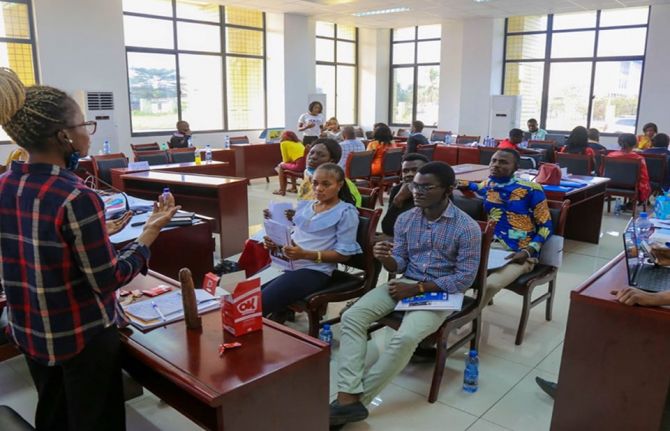

Feature Story
Coalition working to end gender-based sexual violence in Democratic Republic of the Congo
09 March 2021
09 March 2021 09 March 2021The Democratic Republic of the Congo has been plagued by political instability since the 1990s and has seen widespread attacks against civilians, violence between ethnic factions, rape and other forms of sexual violence, and murder. Sexual violence against adolescent girls and young women is common.
Violence against women and girls continues to be a global pandemic that affects one in three women in their life. Violence against women is a major factor for contracting HIV—in areas with a high HIV burden, such as sub-Saharan Africa, women subjected to intimate partner violence are 50% more likely to be living with HIV. And men who are perpetrators of violence against women tend to be at a higher risk of HIV themselves and to use condoms less frequently, thus increasing the risk of HIV transmission.
According to the latest Demographic and Health Survey of the Democratic Republic of the Congo, HIV prevalence is three times higher among women aged 15–49 years (1.1%) than among men of the same age (0.4%) and twice as high among young women aged 15–24 years (0.46%) than among young men of the same age (0.22%).
RENADEF (Réseau National des ONG pour le Développement de la Femme), a platform of approximately 350 non-state groups working for women, is tackling this issue front and centre. As a subrecipient of a grant from the Global Fund to Fight AIDS, Tuberculosis and Malaria, RENADEF is running a project to strengthen awareness around sexual and reproductive health and rights, including HIV, to facilitate access to support services and to encourage behaviour change among adolescent girls and young women in 16 HIV high-burden provincial divisions.
In collaboration with health-care providers, almost 200 peer educators and mentors have been trained on sexual and reproductive health and more than 600 educational talks in different settings, including schools and communities, have been facilitated, reaching more than 6500 people, including 2500 girls.
“I was not informed about sexually transmitted infections and their consequences on my life, but I had the chance to participate in an awareness session organized by the peer educators and mentors in my neighbourhood; at the end of the session, I approached one of the sensitizers to explain my problem to her. She gave me advice and referred me to a health training, where I was taken care of for free and I feel good now,” said Nathalie Nyembwe (not her real name), who attended one of the educational talks.
The project also supports clinics giving psychosocial, legal and judicial support to survivors of sexual violence. Since 2018, clinics have been held that have provided psychological support to almost 5500 people and legal/judicial support to more than 3500 survivors of sexual violence.
The community sensitization, capacity-building of legal clinics and support for survivors of sexual violence have contributed to an increase in the reporting of rape.
“It’s particularly important, particularly as we reflect on our experience with COVID-19, that we acknowledge the important role that women have played to protect others from violence, to ensure continued support to vulnerable families and to ensure access to food and medicine. Women have provided invaluable support to keep people connected to neighbours, services and information, all the while ensuring that homes remain a safe space for children and families to continue to learn and grow socially,” said Susan Kasedde, the UNAIDS Country Director for the Democratic Republic of the Congo.
As a champion country of the Global Partnership for Action to Eliminate all Forms of HIV-Related Discrimination, the Democratic Republic of the Congo has a unique opportunity to strengthen its implementation of coordinated, comprehensive and scaled-up action involving a range of stakeholders and to build synergies on action on gender equality across sectors.



